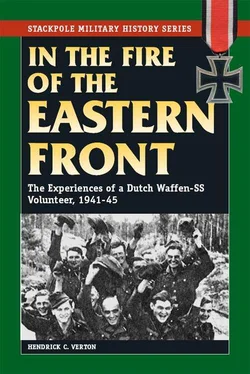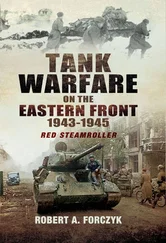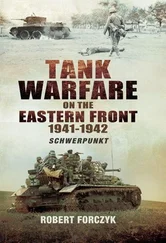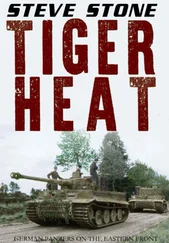The pressure on the civilian population gradually decreased which cannot be said for the ‘volunteers’. A further 5,000 were arrested and interned, without ‘due process’, for all the difference that would have made. Five years later, in 1950, Dutch soldiers who returned to Holland, having been released from Russian POW camps were immediately arrested and sentenced! The final insult came for those men, when they were visited in their cells by officers collecting information and experiences of the Russian-front soldiers, because of the ‘Cold War’ with the Communists. An anachronism of history? Upon being released from prison, those men lost their nationality. Holland made displaced persons out of their own countrymen.
It was no better in other countries. The Norwegians too sentenced 7,000 of their ‘volunteers’ with a sentence of up to four years’ imprisonment. In Denmark it was more, with 7,717 men sentenced. The Belgians sentenced 3,193 ‘colt aborators’ to death. Even when the death sentences were not carried out, for the ‘volunteers’ it meant years of imprisonment. Switzerland was no better, with 1,300 men brought before courts martial. The sentences were harder than for the fighters in the Spanish Civil War in the 1930s.
As late as 1952, 2,400 French ‘volunteers’ were interned for their part in fighting Bolshevism, which they could avoid by then fighting in Indochina, or serving in the French Foreign Legion. From the ‘volunteers’ from the Balkans and the Soviet Union 11,000 Slovenian ‘volunteers’ were liquidated by Tito’s partisans in May of 1945. Then a further 90,000 Croatian soldiers of the Ustascha Army were sentenced. The British delivered 35,000 Cossacks, without consideration of asylum, or of international laws, to the Russians. They were either shot on sight, sent to forced-labour camps, or into mines. The same applied to neutral Sweden that had profited so much from German trade. They gave their German prisoners, and those from the Baltic divisions, to the Russians.
The hate-laden atmosphere of this European ethnic-cleansing did not allow for objective argument or explanation of motives. Only years later were approaches made to repair the association, without condemnation, between the Russian front-fighters and their accusers.
Hans Werner Neulen, in his book An Deutscher Seite, asked the question, “Were they the best that prevailed at that time, or captive slaves in Prussian straight-jackets? When, between the Communists with their universal aims of remedial teaching, and the National Socialists with their expectations of Germanic control, the ideals of liberation did not materialise, then the foreign ‘volunteers’ chose the side of the German Reich”.
Till today in the Netherlands, no one will accept that there were far more ‘volunteers’ wearing field-grey than those of the Allies wearing khaki.
CHAPTER 22
Constructing an Existence
For a very long time after the war, Evert and I did not realise that we both belonged, due to our birth dates to an age-group that suffered the highest casualties during the Second World War. ‘Lady luck’ however, had decided that we would both survive and now we had to build an existence for ourselves.
We both now had an identity, even if threaded with untruths, tricks and deceit, nonetheless it enabled us to live in the British Zone. It was far better than the alternative, but still not easy. So as not to starve we both needed work and a permanent roof over our heads, and neither was at a premium in Detmold. It meant looking elsewhere.
We gleaned the information that miners were needed in the Ruhr area. It would be the hardest of physical labour, but every miner was sure of 2,864 calories per day, i.e. a full stomach! There were no other offers of work, so we used this as a springboard for our futures. Work in the mines was top of the list, as hard physical labour of course. Another perk was that accommodation was offered with the job as well. There was a little fly in the ointment inasmuch as, in this still conservative time, you had to be married before you received accommodation together. Brigitte and I could not bear the thought of another separation, and so there was no other choice, we had to marry. That meant waiting until the bans were hung in the local Registry Office which took three months. Due to his contacts with the local council, Mr Snuverink managed to have this three-month wait waived. The advantage was that no one had the time to snoop into my true identity or nationality. The only truth in the matter was my name of Verton.
The date was set for 12 December 1947. It was a cold winter. Inside, the cold demeanour of the Registrar was just as ice-cold as it was outside. However, he married us, with Mr and Mrs Snuverink as our witnesses. Our romance had begun in war-torn Breslau eighteen months before, in the summer months. We sealed our fate together forever, giving our word to one another in the extreme of winter months, in Detmold. We are, after 55 years together, still as much in love as on that first day in Breslau.
We neither felt the cold nor saw the greyness of the mist as we left the Registry Office. Our wedding breakfast was a stew with runner beans. For those times it was cordon-bleu and relished as such. Our honeymoon, of one night, was spent in the Railway Hotel. It was rather meagre, for despite it being December, the room was not heated. The next morning in wanting to leave, a dog baring its teeth barred our way, warning the proprietor of our departure. The dog was there to stop those crooks of society who had no intention of paying for their rooms.
Our wedding was to prove to be the reason that the whole of my family left Holland and came to Germany. My brothers found their wives here, and in the words of Geothe, “we formed a chain” of Vertons, a new one, which now stretched from France to Holland, and from Holland to Germany.
The three of us then made our way to the Ruhr, the epicentre of coal-mining. Both Evert and I were engaged straight away by the Essen Coal Company in Dortmund-Dortfeld, which owned two-thirds of the coal works in that area. Brigitte and I were given a warm furnished room in the Karl-Funke Strasse. Only a couple of streets away Evert was given a room by one of the medics of the company. Among Evert’s duties was first aid to the injured in the mine. The medic was a Marxist and although he had never seen the Russian Steppes, a bronze bust of Lenin had its place of honour beside the highly polished coal-fired stove. Evert was to be found most evenings in our room, where we cooked and ate, and had to sleep. Brigitte knitted us pullovers from shredded parachute silk, and cut us trousers from tenting material.
The whole nation heard about our record output in the tons of coal that we dug out of the earth. We were the heroes of the underground, but the population still froze. “Every ton is useful. For death lies in empty hands, for no coal, no food, no transport, therefore no production”. That was the declaration of the British military command, who urged for more and more, because more than a quarter of our coal was for their usage. Dismantling and demolition was now the order of the day. There was a hive of industry, for what the Allies had not destroyed with their bombs, they destroyed with explosives, such as the tall chimneys on industrial sites. Everything that was of use was dismantled, brick by brick. It was a ‘cold war’ and the continuation of war, but by other means.
The increased pressure on the coal-miners did not ensure the upkeep of safety precautions in the mines. On the contrary, the training of new workers was simply not what it should have been. Evert and I belonged in that category, being fully-fledged miners after just three days of training. That was how we started. Our production was still not enough, and so POWs were released from the prison camps on the condition that they worked in the mines. The accidents underground increased, and at a shocking rate. 178,000 tons of coal daily was the record, 50% more than in 1936.
Читать дальше












